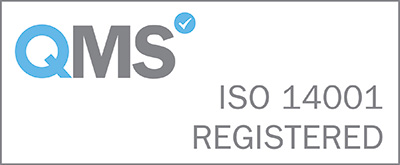ViewPoint
In this feature Resolve Optics offers its view on areas of topicality within the optics industry, we welcome your feedback.
Competitive Edge

Whether you are developing a new product or looking to extend the life of an existing product, one of the key necessities is that it should offer real benefits over your competitors. When we look at products that incorporate an optical system a competitive edge could be as simple as providing higher resolution. However, with the increasing pace of technological development today just how long will that competitive edge last?
To achieve a competitive edge that lasts you need that your product incorporates a unique component to provide advantages and improvements that your competitors do not have access to. One well proven route to achieving this with cameras, sensors and optical instruments is that your product should include a performance optimised custom lens or lens system designed specifically for your application. Such optimised custom lenses provide you with the desired competitive edge. Most important is that your optimised custom lens has been developed on an exclusive basis, placing a considerable hurdle for your competitors to overcome in order to compete with you.
There are many ways in which an optical system can provide competitive edge:
Size - An increasing number of applications are constricted by a lack of space in which the optical measurement device can sit. Keeping lens designs compact is a speciality of Resolve Optics.
Format - Sensors are evolving constantly and there seems to be a trend towards moving away from standard formats. Having a custom lens optimised to leverage top performance from non-standard format sensor can give you an advantage.
Resolution - All industries are information hungry and consequently are pushing for higher and higher resolution. Achieving highest possible resolution is rarely done with a standard off-the-shelf lens.
Aperture - Lens performance is affected by how much light you can get through it i.e. its F-number. Specialist lens design helps you achieve the maximum F-number in the application space constraints.
Wavelength - Most applications have a key bandwidth or wavelength at which optical measurement / sensing is optimally carried out. Designing a lens / lens system to provide peak performance in the key bandwidth / wavelength can give your product an edge.
Mechanical interface - Some applications and operating environments place great demands on an optical system. Consequently having a custom lens mounting arrangement, for instance to minimise the detrimental effect of vibration, can place your product head and shoulders above the competition.
A custom lens with a single one of these advantages can definitely give you a competitive edge. However if your product incorporates a custom lens that offers several of the above optimised performance factors it is then possible to achieve even greater competitive edge.
Such performance optimised products typically take a larger share of the available market demand and consequently are a benefit to your company's bottom line. In addition having an exclusively developed optimised custom lens in your product gives you the benefit of security of supply. Standard off-the-shelf lens unfortunately are only available for as long as the market is sufficiently large to justify their existence. As just one of many purchasers of a particular standard off-the-shelf lens you are unlikely to be able to influence the manufacturer supplying such a lens.
To discuss development of a custom optimised lens to give your new product a competitive edge or extend the sales life of a core product please contact Resolve Optics. |












 Resolve Optics has announced that it will be exhibiting at VISION 2016 in Stuttgart, Germany. Visitors to Stand I22 (Hall 1) will be able to discuss with technical specialists how a custom lens design can enable them to benefit from the full performance of their camera, sensor or instrument. Managing Director of Resolve Optics, Mark Pontin commented “In the current competitive machine vision arena – market-leading cameras, sensors and instruments often rely heavily on outstanding optical performance. We have built our reputation on development and supply of specialist lens and optical systems that enable products to achieve their full performance potential thereby enabling our customers to gain that all important competitive advantage". We look forward to seeing you in Stuttgart.
Resolve Optics has announced that it will be exhibiting at VISION 2016 in Stuttgart, Germany. Visitors to Stand I22 (Hall 1) will be able to discuss with technical specialists how a custom lens design can enable them to benefit from the full performance of their camera, sensor or instrument. Managing Director of Resolve Optics, Mark Pontin commented “In the current competitive machine vision arena – market-leading cameras, sensors and instruments often rely heavily on outstanding optical performance. We have built our reputation on development and supply of specialist lens and optical systems that enable products to achieve their full performance potential thereby enabling our customers to gain that all important competitive advantage". We look forward to seeing you in Stuttgart.